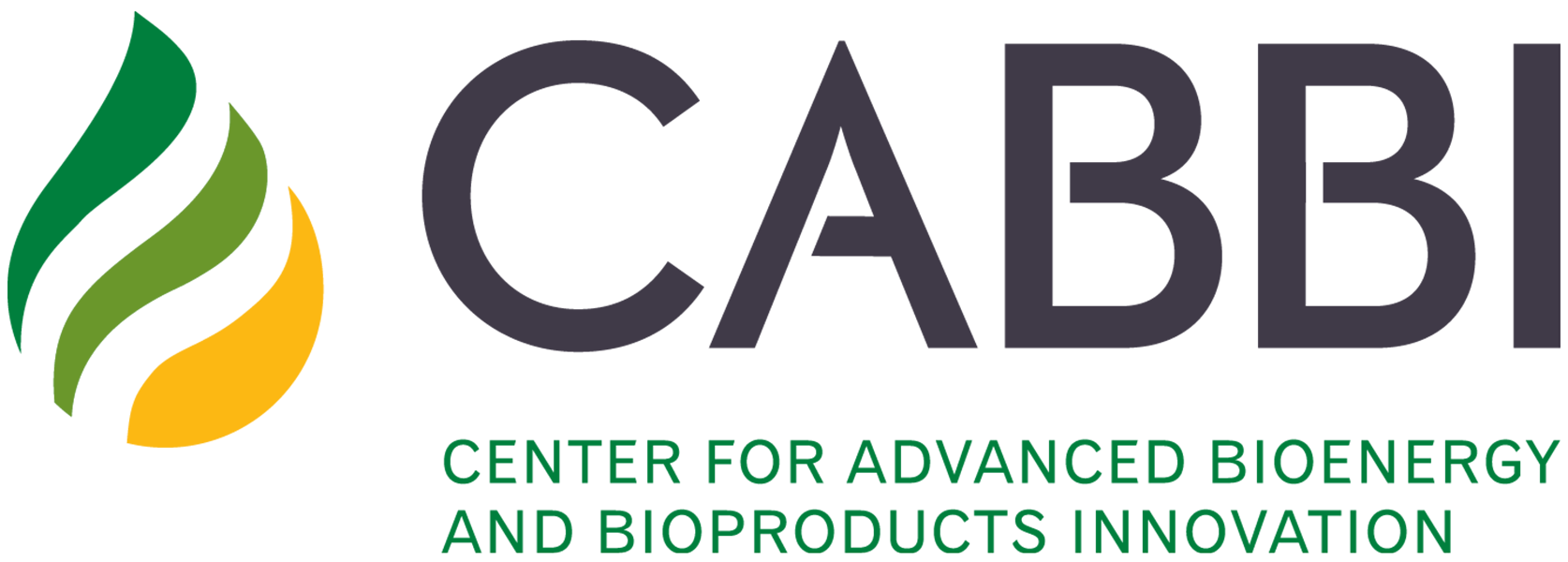
PI: Andrew Leakey (UIUC)
Co-PIs: Vijay Singh, Don Ort, Matthew Hudson, Emily Heaton, Huimin Zhao, Wendy Yang, Erik Sacks, Kankshita Swaminathan, Christopher Rao, Joshua Rabinowitz, Carl Bernacchi, Andy VanLoocke
Funding Source: DOE
Award Number: DE-SC0018420
Website: https://cabbi.bio/
The Center for Advanced Bioenergy and Bioproducts Innovation (CABBI) has made substantial progress toward developing scientific understanding and technological innovations required for the economically and ecologically sustainable production of liquid biofuels and platform chemicals. CABBI is comprised of 21 institutions, led by the University of Illinois Urbana-Champaign, and is organized around three interconnected themes, which align with the DOE priority research areas of Sustainability, Feedstock Production, and Conversion. CABBI addresses the following long-term goals:
1) Provide an integrated economic and environmental framework for determining feedstock supply and its sustainability;
2) Provide a regionally adaptive yet national-scale platform for grass-based biorefining based on high-yielding feedstocks with improved environmental resilience;
3) Provide a broad set of platform microorganisms, and automated tools to engineer them, to produce value-added products from plant-produced feedstocks or substrates.
The economic and ecological sustainability of the entire production system is guided and evaluated by integrated models for techno-economic assessment (TEA) and life-cycle analysis (LCA) informed by measurements of agroecosystem function. Following a vision of “plants as factories,” biofuels, bioproducts, and foundation molecules are synthesized directly in highly productive, resilient and sustainable C4 grass feedstocks. Plant-derived oils and sugars are upgraded to higher-value platform compounds by highly engineered non-model yeasts. CABBI’s approach takes advantage of our team’s expertise in ecosystem ecology and agricultural economics, plant and microbial engineering, genomics, and computational biology. It leverages key facilities: Carl R. Woese Institute for Genomic Biology; Illinois Energy Farm; SoyFACE: the Integrative Bioprocessing Research Laboratory pilot plant; and the Illinois Biological Foundry for Advanced Biomanufacturing (iBioFAB). CABBI’s partner institutions contribute facilities for plant transformation, field trials, computation, and diverse molecular, chemical, and physiological analyses.
CABBI research will substantially advance understanding of:
• ecosystem carbon, nitrogen, and water cycling of agroecosystems and representation of that knowledge in models to predict the productivity and sustainability of feedstock production across diverse environments and under climate change;
• multiscale, spatially explicit models integrating information on ecosystem function and land availability for bioenergy production as well as refinery-scale TEA and LCA so that we may predict paths to meet demand for bioenergy and bioproducts under different climate, market, and policy scenarios;
• C4 grass genomes and methods to more efficiently manipulate them through breeding and biotechnology for crop improvement;
• the genetics, biochemistry, and physiology requisite to engineer high-value bioproduct synthesis, abiotic stress tolerance, and resource use efficiency in feedstock crops;
• machine learning and automation to accelerate the DBTL cycle and design novel enzymatic functions; and
• the genetic and physiological constraints that limit production of high-value compounds by nonmodel yeasts with distinct native metabolism.
In summary, CABBI will deliver resilient, highly productive grasses containing large amounts of lipids and targeted to rainfed marginal lands, along with microbial conversion technologies to produce high-value platform chemicals from plant biomass, and demonstrate their economic and environmental viability.